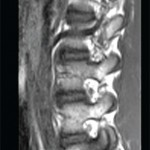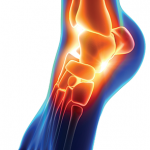Guselkumab Studied to Treat RA & Plaque Psoriasis Guselkumab (GUS) is a subcutaneously administered monoclonal antibody that targets interleukin (IL) 23.1 It is being investigated in a Phase 2 study to treat rheumatoid arthritis (RA) and moderate to severe plaque psoriasis (PsA). On June 11, 2015, at the 2015 meeting of the European League Against…

EULAR 2015: Cardiovascular Concerns, Infertility in RA
ROME, Italy—In what researchers say is the first study evaluating cardiac magnetic resonance (CMR) findings in early rheumatoid arthritis (ERA) patients, cardiovascular abnormalities were significantly worse in patients with ERA than in matched, healthy controls. The study results were presented at EULAR 2015, the annual congress of the European League Against Rheumatism (EULAR). Cardiovascular Concerns…

EULAR 2015: Benefits of Individualizing Exercise Therapy
ROME, Italy—The medical environment is increasingly adapting to the possibilities of optimizing care by individualizing medical treatment and tailoring treatment to disease phenotypes. Data suggest that individualizing exercise therapy, an important treatment modality for rheumatic and musculoskeletal diseases, can help control disease, maximize function, minimize functional barriers and decrease the risk of co-morbidity.1,2,3 Personalizing exercise…

EULAR 2015: Imaging in Rheumatology
ROME, Italy—The explosion of imaging technology has made it more important than ever to establish a standardized way in which imaging can and should be used in clinical practice, an expert said in a session at EULAR 2015, the annual congress of the European League Against Rheumatism (EULAR). Marie-Antonietta d’Agostino, MD, PhD, professor of rheumatology…

Ankle Replacement: Are Patients with Ankle Arthritis Good Candidates?
Ankle arthritis is a debilitating condition that leaves many patients in severe pain and greatly limits their activities. Until recently, the standard treatment for bone-on-bone ankle pain has been ankle fusion, or arthrodesis, in which surgeons literally fuse the bones of the ankle joint together. However, in the past few years, total ankle replacement surgery,…
Arthritis May Be Worse in Poor Countries, but Seem Worse in Rich Ones
(Reuters Health)—A study of people with rheumatoid arthritis (RA) finds that those in wealthy nations are more troubled by it, even though people in poor countries have more severe symptoms. The results, tallied from 17 countries, suggest that cultural factors may influence patients’ perception of their illness, and possibly even the results of clinical trials…
Self-Monitoring of RA Treatment May Lead to Fewer Office Visits
NEW YORK (Reuters Health)—Self-monitoring of methotrexate therapy may curb healthcare utilization in rheumatoid arthritis (RA) and psoriatic arthritis, according to a new trial. The study indicates “that this novel model of care led to significant reductions in outpatient visits to the (clinical nurse specialist) and a reduction in visits to the GP, while maintaining the…
Alcohol Use Complicates Chronic Disease Management in Teens
NEW YORK (Reuters Health)—High school students with chronic medical conditions who drink alcohol are more likely than their nondrinking peers to forget or skip taking their medications, according to an online survey. “I was surprised to see such a clear association between alcohol use and medication nonadherence—a finding which really brings home the need to…
Can We Get Closer to a Cure for RA?
Despite new therapeutics, progress for RA patients has virtually stalled over the past 10 years. In this article, the authors discuss many options to advance to a cure and the evidence for them, including the combination of low-dose methotrexate and anti-TNF; targeting angiogenesis and tissue damage pathways directly; antigen-specific therapy; potential combination of TNF and IL17 blockade; and targeting inhibitory receptors and regulatory T cells.

Early, Aggressive Therapy for RA May Result in Cost Savings Long Term
By considering the long-term damage from early, aggressive rheumatoid arthritis, researchers in the UK were able to develop a model demonstrating the long-term cost effectiveness of more aggressive combination therapies v. short-term treatments…
- « Previous Page
- 1
- …
- 44
- 45
- 46
- 47
- 48
- …
- 76
- Next Page »